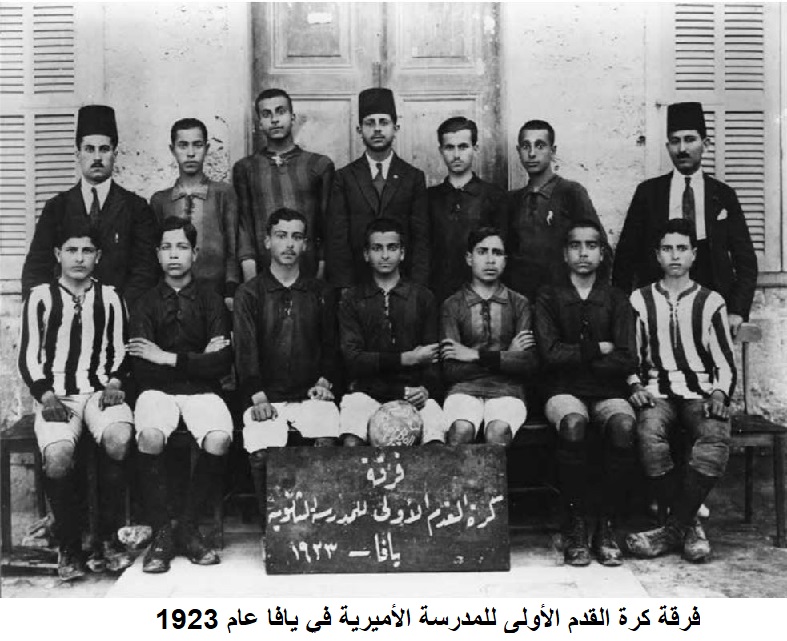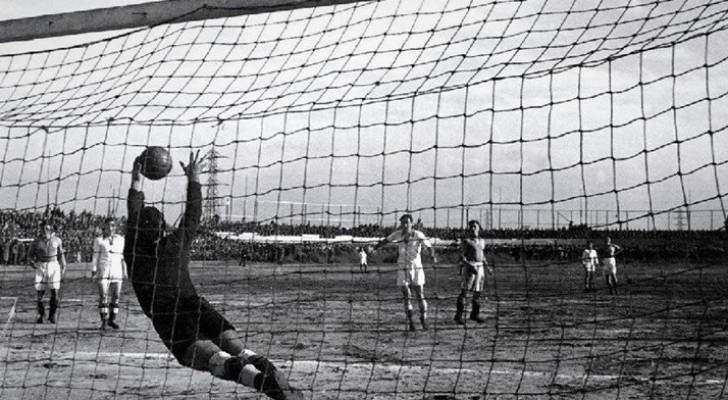Overlooked Palestinian legacy in FIFA history: Journey of exclusion
The 1934 FIFA World Cup in Italy saw 32 nations vying for a spot in the finals, with 16 teams advancing after a series of qualifiers. Among the teams that competed was Palestine, which played its final qualification match against Egypt in Cairo. The Palestinian team lost 7-1, and Egypt progressed to the World Cup finals.
While some celebrate Palestine’s early involvement in the qualifiers, a closer look reveals a troubling truth: the Palestinian team was predominantly composed of Jewish and British (Mandate) players, and was officially named the "Palestine Mandate Football Team." This wasn’t due to a lack of Arab talent, but rather a political and racial exclusion that systematically sidelined Arab players.

In the 1920s, Zionist clubs in Palestine monopolized the country's international sporting representation, ensuring that only Jews played for Palestine. In 1929, these clubs obtained membership in FIFA under the name "The Palestinian Football Association." This association not only banned Arab representation but also pushed for policies that prevented Arab countries such as Syria, Egypt, and Lebanon from playing against Palestinian teams, citing the lack of affiliation with FIFA.
In response, an Arab Palestinian football team was formed in 1931 and played its first match in Beirut. That same year, the Palestinian Arab Sports Federation was established to serve as a framework for Arab sports in Palestine.
During the 1920s, Jewish teams such as Maccabi "Hachshmonai" Jerusalem played matches with teams from Arab cities, including Cairo and Alexandria, and even faced Egypt's secondary school national team in 1931.
When a team was formed in 1930 to represent Palestine, Arab players were excluded. The team consisted of nine British players (from the Mandate forces) and six Jewish players. The team often featured Zionist symbols, and on one visit to Egypt, the team's uniforms displayed the letter "P" for Palestine, alongside two small Hebrew letters signifying the land of "Israel," a detail that went unnoticed by the Egyptian audience.
In 1933, a Jewish committee petitioned to join the International Olympic Committee (IOC), which responded by stating that the Palestinian Olympic Committee could not be recognized in its current form. It insisted that it must include Jews, Muslims, and Christians. The Jewish committee then invited Muslim and Christian Arabs to join, only to expel them after gaining membership in 1934.
Research indicates that Khader Kamal, secretary of the Arab Sports Club, sent a telegram to FIFA in 1933, stating, "Palestine is now represented by a full Jewish team, even though Jews make up less than a third of the population. We hope you will recognize the Arab Sports Club as an independent entity because the majority of the population is Arab, and it is unreasonable for the Jews to represent the country." FIFA replied that the issue would be reviewed, but the Palestinian Football Association was immediately contacted for approval.
In 1945, Palestinian Arabs requested Egyptian mediation to either gain international recognition for the Arab federation or secure appropriate Arab representation within the Palestinian federation. Plans were made for Palestinian Secretary General Abdul Rahman Al-Habbab to attend the FIFA meeting in Luxembourg in 1946, but FIFA refused his attendance, likely influenced by the Palestinian Football Association.
Shorouq Zaid documents the numerous local and regional Palestinian sports activities at the time, showcasing significant athletic potential that was stifled by British-Zionist influence. She also highlights the political oppression, arrests, and restrictions placed on Palestinian clubs before the Nakba. FIFA’s refusal to grant the Palestinian Sports Federation membership in 1951 further underscores the obstacles faced.
While it is true that the early football matches before 1948 were technically Palestinian, the story of sports in Palestine is much more complex, involving political maneuvering and exclusion that is often overlooked, especially when reflecting on the matches of the 1930s.




